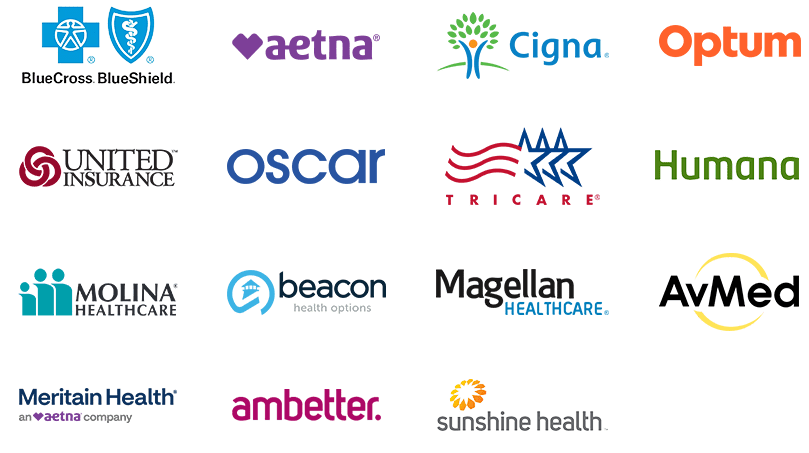
Bipolar Disorder and Addiction Treatment
Life with bipolar disorder and addiction can feel overwhelming, but it’s important to know that recovery is possible and brighter days are ahead. These challenges may disrupt relationships, work, and overall well-being, but they don’t define who a person is or the life they’re able to lead.
At 449 Recovery, we believe in the strength of the human spirit and the power of the right support to overcome even the toughest obstacles. With compassionate care and proven strategies, we’re here to help you regain control, rediscover hope, and build a healthier and more fulfilling future.
What is Bipolar Disorder?
Bipolar disorder, formerly known as manic depression, is a mental health condition characterized by extreme mood swings. These mood fluctuations can range from manic highs to depressive lows, and sometimes, mixed episodes that combine symptoms of both. While the exact cause is unknown, bipolar disorder is believed to result from a combination of genetic, environmental, and neurochemical factors.

Types of Bipolar Disorder
There are several types of bipolar disorder, each presenting distinct patterns of mood episodes.
Bipolar I Disorder
Bipolar I is characterized by extreme mood swings, including manic episodes that last at least seven days. Individuals may require immediate hospitalization due to severity. These episodes are intense and can cause significant disruption in daily life, relationships, and responsibilities. They may involve heightened energy, racing thoughts, impulsive decisions, and even psychosis in severe cases. Following manic episodes, individuals often experience depressive episodes, which can persist for two weeks or longer. During these periods, feelings of sadness, hopelessness, and fatigue dominate, impacting the ability to function effectively.
Bipolar II Disorder
This type is distinguished by recurring episodes of hypomania and depression. Hypomania represents a milder form of mania, with elevated mood and increased activity levels, but without the severe impairment seen in full mania. Individuals with hypomania might feel more productive and energetic, which can sometimes go unnoticed or even be perceived as positive. However, these phases are often followed by depressive episodes that can severely impact daily functioning, making the disorder challenging to manage.
Cyclothymic Disorder (Cyclothymia)
Cyclothymia involves frequent and chronic mood fluctuations over at least two years, with symptoms that do not meet the full criteria for a manic, hypomanic, or depressive episode. Individuals with this disorder experience periods of mild depressive symptoms interspersed with hypomanic-like states. While the symptoms are less severe, they can still disrupt a person’s life and relationships over time, making consistent stability difficult to achieve.
Other Specified and Unspecified Bipolar Disorders
These categories encompass cases that do not align precisely with Bipolar I, Bipolar II, or Cyclothymic Disorder but still involve significant mood disturbances. For example, individuals might experience mood shifts triggered by substance use, medications, or underlying medical conditions. These cases are diagnosed when symptoms cause noticeable distress or impairment but do not meet standard diagnostic criteria.
Substance abuse often co-occurs with bipolar disorders, worsening symptoms, and complicating treatment. This makes an integrated dual diagnosis approach critical for lasting success.
Symptoms of Bipolar Episodes
Bipolar disorder involves distinct mood episodes (manic, hypomanic, depressive, and mixed) affecting emotions, energy, and behavior. Recognizing their symptoms is key to seeking effective treatment.
Manic Episodes
- Increased energy, restlessness, or euphoria
- Inflated self-esteem or grandiosity
- Decreased need for sleep
- Rapid speech and racing thoughts
- Impulsive or risky behaviors (e.g., overspending, substance use)
Hypomanic Episodes
- Similar symptoms to mania but less severe
- Noticeable changes in mood and energy that may not disrupt daily life
Depressive Episodes
- Persistent sadness or hopelessness
- Loss of interest in activities once enjoyed
- Fatigue or lack of energy
- Difficulty concentrating or decision-making
- Thoughts of death or suicide
Mixed Episodes
- Simultaneous symptoms of mania and depression, such as feeling highly energetic but deeply hopeless.

Relationship Between Bipolar Disorder and Addiction
The relationship between bipolar disorder and addiction is deeply intertwined, with research highlighting a high co-occurrence of these conditions. Many individuals struggling with bipolar disorder turn to substance abuse as a way to cope with the intense mood swings that come with the condition. Unfortunately, this often creates a harmful cycle that exacerbates symptoms, complicates treatment, and delays recovery.
Studies show that nearly 60% of people with bipolar disorder develop a substance use disorder at some point in their lives. Alcohol is the most commonly abused substance, followed closely by marijuana (weed), cocaine, and opioids. These statistics underscore the critical need to address bipolar disorder and substance use together, as treating one without the other often leads to incomplete recovery and relapse.
While substance abuse does not directly cause bipolar disorder, it can significantly worsen symptoms or even mimic the condition. For instance, stimulants and hallucinogens can trigger manic-like behaviors, while depressants may deepen feelings of hopelessness and fatigue. Prolonged drug use can also alter brain chemistry, potentially increasing the risk of developing mental health conditions, including bipolar disorder, in individuals who are genetically predisposed.

Dual Diagnosis Treatment for Bipolar and Substance Abuse
Dual diagnosis treatment addresses bipolar disorder and substance abuse simultaneously, recognizing the necessity of treating both conditions together for lasting recovery. The deeply intertwined nature of these challenges demands a comprehensive approach to prevent relapse and ensure a complete healing process.
Bipolar disorder adds a layer of complexity to addiction treatment, making traditional recovery approaches less effective. Here’s how bipolar disorder influences addiction treatment:
The extreme mood swings associated with bipolar disorder can interfere with an individual’s ability to engage consistently in therapy. For instance, a person in a manic state may feel invincible and downplay the need for treatment, while someone in a depressive state may lack motivation to participate.
Treating bipolar disorder often requires mood stabilizers or antipsychotic medications. However, these medications may interact with substances in the system, necessitating careful medical supervision during detox and recovery.
Individuals with bipolar disorder often turn to substances as a way to self-medicate. Addressing these behaviors involves teaching healthier coping strategies through Cognitive Behavioral Therapy (CBT) or Dialectical Behavioral Therapy (DBT).
The stress of managing bipolar symptoms increases the likelihood of relapse without proper support. Long-term recovery plans must include strategies for managing mood episodes to prevent substance use triggers.
Never Be Alone Again
Come Join Our Recovery Family
Bipolar Disorder and Addiction Treatment at 449 Recovery
At 449 Recovery, we specialize in personalized care for individuals struggling with bipolar disorder and substance abuse. Our dual diagnosis approach integrates evidence-based therapies like CBT and DBT with Medication-Assisted Treatment (MAT) to address both conditions effectively.
We provide a supportive environment with comprehensive services, including detox, therapy, family support, and aftercare planning, helping clients build resilience and achieve lasting recovery. Ready to take the first step? Contact us today to learn more.

WE’VE GOT
YOU COVERED!
Insurance coverage for treatment is within reach. We are in-network with most insurance carriers in Florida.